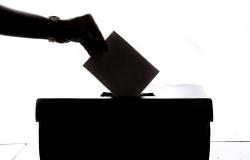The Great Power Politics Behind the current Voting Impasse at the World Bank

Robert H. Wade and Jakob Vestergaard explore why some powers wish to prevent the Bank form representing the contemporary global economy.
China’s President Xi Jinping takes every opportunity to declare that “The East is rising; the West is declining”; and since the start of President Trump’s second administration Xi frequently boasts of his country as the antidote to “America First”.
The tensions between China and the US play out in microcosm inside the World Bank, and specifically in the context of China’s drive to raise its shares and votes in the governing body. By the formula that the Bank’s shareholders agree should largely determine the division of shares and votes China has been for many years and remains today very under-represented, a matter of resentment to China’s leaders.
The formula for dividing up shares and votes gives most weight (80%) to a country’s Gross Domestic Product (GDP); and a smaller weight (20%) to a country’s financial contributions to the Bank’s soft-loan fund for low-income countries (the International Development Authority, IDA).
By this formula China has a strong case for a large increase in shares and votes. It is currently number three in the hierarchy, after the US and Japan. The current distribution of votes is: US, 16.09% (putting it well above the veto threshold of 15%, the only country with a veto); Japan, 6.93%; China, 5.79%. China’s share in 2008 was 2.78%, and its increase of more than three percentage points since 2008 is the biggest change for any country.
Still, China’s GDP is significantly bigger than the US’s when measured at purchasing power parity exchange rates ( which reflect differences in the cost of living); and second biggest when measured at nominal exchange rates. And in recent years it has made large contributions to the IDA fund. By the formula it should clearly be number two, behind the US but above Japan.
The US is determined not to allow this, Japan even more determined. As a senior Bank official explained, “Japan would rather sink to the bottom of the sea” than have China above it in the hierarchy.
The other BRICS countries, other developing countries, and several European states, support China’s claims, on grounds that the continuing global relevance of the institution depends on it being fair to China. They worry that (in paraphrase) “if we keep failing on China, the already serious fragmentation of the world order will increase even more, China will cut its funding to the Bank (including its big contribution to IDA), and it will build up alternatives to the Bank.” But this argument carries little weight with the US and Japan.
To understand what lies behind this US-China-Japan issue in the World Bank we have to begin with the Board of Executive Directors (ED s). The Board is the effective governing body, made up of 25 civil servants representing their own country and, for 20 of them, also representing a constituency of multiple countries.
The Board’s decision-making procedure requires the chair of the Board (who is also the president of the Bank) to hear the views of the ED s around the table and then announce the “consensus” of the meeting. There is no qualified majority decision.
In other words, votes are almost never taken. Yet many governments place high value on the amount of their shares and votes, and try to increase them. On the face of it, this is puzzling.
The short answer why many governments place high importance on their share of shares and votes has two parts. First, governments (some more than others) take their share to be a marker of their status vis-a-vis rivals. Second, although votes on the Board are almost never taken, proposals that come to the Board for decision will have already been shaped by the vote shares. The proposals are worked up by management, which typically “cooks” the proposals to reflect the views of the dominant shareholders, or those most directly impacted for and against. To a large extent the Board deliberations are “theatre”, re-runs of more private one-on-one or small group discussions with management.
The dominant shareholder, by far, is the US. It is the only state with a veto, and “when you have a veto you don’t need to actually use it -- just as when you go to a meeting with a gun you don’t need to use it, provided everyone knows you have it”, as an ED explained. The US not only holds the only veto but also a monopoly on the presidency — the president is always an American citizen nominated by the US government. No president can survive without active backing from the US.
Only once, in 2012, have developing countries put forward candidates for the presidency. In that year the US managed to install a patently unsuitable president in the face of two eminently well-qualified candidates from developing countries. Subsequently developing country governments have tended to say, “why should we present a famous name from our country only for the nomination to go nowhere in the face of US opposition ?”; or “why make ourselves vulnerable to US displeasure and cut-offs in aid ?"
The current president, Ajay Banga, an Indian-born US citizen coming to the Bank after being the head of Mastercard, has worked hard day by day to win support from senators, from the White House, from Donald Trump. His management team have complied with the signals sent by the Trump team to de-emphasise climate, other environmental issues, gender and diversity, and more. References to the Trump toxic subjects have mysteriously disappeared from Bank publications, organisational division names and staff titles; and the heads of neither the Bank nor the International Monetary Fund have issued critiques of the Trump administration’s tariff hikes, despite the damage of those hikes to developing countries, preferring to make vague disapprovals of “trade tensions” in the world.
The whole of Bank management is extra attentive to what the US wants ( " US” denotes mainly the Treasury, White House, State Department and Congress), knowing that the US ED will reject proposals before or at the Board meeting that the US government does not want. That is what is meant by saying that by the time a proposal gets to the Board to be discussed by the collective of 25 ED s it will have been “cooked” to ensure the US ED is, at a minimum, unlikely to object.
On the other hand, China keeps pressing. President Xi in his international speeches and essays often calls for an increase in the “representation and voice” of the Global South in the IMF, the World Bank and the WTO. The gist of what Chinese officials have been saying about China’s role in the Bank is (in paraphrase), “we have been playing by the rules, we have been doing what by the formula should earn us a bigger share — for example, making big contributions to IDA. Yet we remain very under-represented.” The Chinese ED at the Bank does not miss an opportunity to draw attention to China’s unjustified under-representation, on this issue becoming much more assertive than her normal quietly determined manner.
The Bank’s Board agreed in 2010 to conduct five-yearly “shareholder reviews”, intended to promote negotiations about revising the allocation of shares and votes. But given the geopolitics, it is hardly surprising that the “shareholding reviews” since 2010 have yielded only marginal (often at the second decimal place) changes in voting shares. China has gained more than any other country but remains significantly under-represented by the formula. India and Indonesia are other significantly under-represented economies.
In the run-up to the Annual Meetings of the Bank and Fund, October 13-18, 2025, the Bank presented a Progress Report on the 2025 Shareholding Review. Only four pages long after months of negotiation, its language is strikingly vague. It concludes, “At this stage, there are diverging views on whether to realign shareholding and voting and on when to conclude the Review. Some shareholders do not see a case for adjustment. Others see a need to address misalignment in some way” (p.3). An ED said that the group responsible for making the review had to work long and hard to find a vague enough form of words to conceal the disagreements. In effect, the non-change proposed in the 2025 review leaves the distribution of shares and votes much the same in 2025 as it was in 2010, despite all the changes in the “weight” of countries in the world economy in those 15 years, as measured by GDP.
Meanwhile, the core management committee responsible for handling governance matters (COGAM) has been pressing ahead with other ways to increase the “voice” of developing countries, especially small and poor ones. The committee calls this the “voice secondment program”. Some of the measures are uncontroversial and fairly cheap, such as bringing in more interns from small and poor developing countries and allowing constituencies to have two Alternate ED s instead of just one, as now. At the other end of difficulty is a Special Capital Increase (SCI), which would be a direct way of increasing the shares of big under-represented countries like China, Indonesia, India. But an SCI needs a 75% majority to approve, and the US plus Japan have ample veto power to stop it. Another proposal at the very difficult end is the double majority criterion for the election of the president, meaning a majority of shares and a majority of countries.
The staff and ED s engaged in the COGAM process know full well that nothing much is likely to be approved from their exercise. But still, most countries say, “we must go through the process of doing scenarios for ways to raise the voice of developing countries, even though not much will probably come from it."
To repeat, many governments, including some Europeans, are saying “if we keep failing on China, the already serious fragmentation of the world order will increase even more, China will cut its funding to the Bank (including its big contribution to IDA), it will build up alternatives to the Bank.” But still the US and Japan resist. That is the core of the voting impasse.
Robert H. Wade is Professor of Global Political Economy, London School of Economics. Jakob Vestergaard is Associate Professor of Political Economy, Roskilde University.
Photo by Element5 Digital


